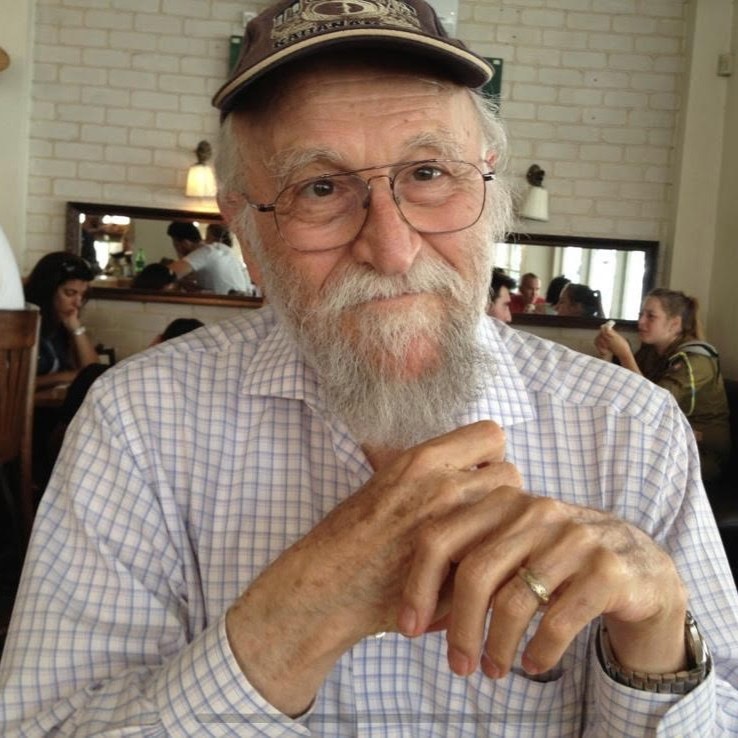Rabbi Eliezer Ben-Yehuda, 86, passed away on March 21.
Born in East Jerusalem, he was a child polyglot — no one ever knew what his first language was. By age 4, he spoke the Arabic of his boyhood friends and neighbors; the English of the empire occupying his homeland; the French of his mother's family; and the Hebrew that was his birthright as a Jew and his responsibility as the grandson of his namesake, Eliezer Ben-Yehuda. By the age of 10, he spoke seven languages and acted as a courier for the nascent Israeli Defense Forces in the War of Independence.
After the war, he continued his service to his country and his people, culminating as a member of the Diplomatic Security team in New York in the 1950s. In 1960, his first son, Itamar, was born to Eliezer and his first wife, Malcah. By 1965, they had divorced, and Eliezer met and married his second wife, Leah Ben-Yehuda (née Feldman), with whom he would have four more children, Tahl, Gil-Ohz, Naomi Kallah and Ilan. Eliezer, having participated in armed conflict for much of his early life, wanted a career as a healer. Though he initially studied medicine, he found his calling attending to people's spirits rather than their bodies.
At the urging of Chancellor Rabbi Louis Finkelstein, he became a small-town rabbi in the 1960s, first serving in Indiana, Pennsylvania, then in 1970, to Butler, Pennsylvania, until 1984. He went on to lead congregations in St. Joseph, Michigan, and Lakeland, Florida, before taking his last pulpit in Ponte Vedra Beach, Florida. During that time, he also lectured on Judaism, Zionism, Hebrew and Israel in colleges and schools, on the radio and in television across the U.S., Canada and in Israel. He was an internationally-published author, and in his 60s earned a Ph.D. in literature. He accepted the mantle of being a light unto the people who are themselves charged with being a light unto the nations.
After his career as a pulpit rabbi, he founded the Eliezer Ben-Yehuda Foundation, whose purpose is to educate people on the role of Ben-Yehuda in the development of the State of Israel.
As a rabbi, he used his depth of biblical and rabbinic knowledge to guide and counsel those in transition. He prepared innumerable students not only for their b'nai mitzvah, but even more for a life of faith. He regularly visited hospitals as a chaplain, worked with couples about to be married, taught those seeking to convert to Judaism and comforted the bereaved through their losses. As a father, he imparted to his children a love of art, music, language, the land of Israel and the importance of service. He loved his Leah ferociously, and lived as her partner in building a loving Jewish home, open to all.
He was a servant both to his people and to the God of his people.
He loved to read biographies, watch movies and listen to classical music. He told outrageously bad jokes and puns at the dinner table. His beard ranged from tame to epic; from brown to snowy white, it never failed to impress. He loved the cats that wandered into and out of his life from the ‘70s through the ‘10s and the dogs he got to visit when he spent time in Overland Park, Kansas, with his daughter Tahl and newest son-in-law, Luke. He will be remembered for so many things, but to his family, perhaps best for his resonant voice that underlies their earliest memories: in song and in prayer, in joy and sadness, in the Shema that they recite to their children and in the harmonies they make with each other.
He is survived by his sisters, Eliezra and Hemda; his beloved wife, Leah; his children Itamar, Tahl (Luke), Gil-Ohz (Jenna), Naomi Kallah, and Ilan (Deborah); grandchildren Ehud, Zohar and Uriah, Eliana and Sara, Lila, Sam and Ada, and Benito; as well as great-grandchildren, cousins, nieces and nephews in the U.S., Israel and Europe.
In lieu of flowers, please consider making a charitable donation to one of his favorite causes: JNF or the Smithsonian.
Online condolences for the family may be left at louismemorialchapel.com.
